Discover our e-shop and access a digital catalogue of over 40.000 design products.
Go to shop26 February 2025
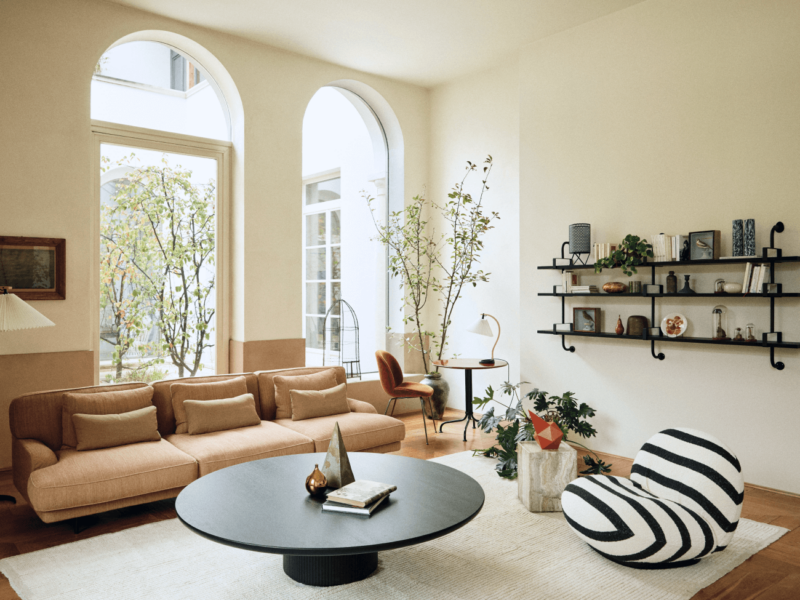
Designed in 1975 by Pierre Paulin, the seat has a new upholstery by Dedar.
In the 1970s, furniture underwent a revolutionary transformation in which shapes were freed from functional constraints to take on unexpected, irrational curves, aimed at experimentation. Habits in the living room changed: it was no longer just a formal space in which to sit in a composed manner but rather a welcoming environment in which to feel at ease.
This paradigm shift was reflected in the design, which changed in lines, materials and upholstery. The sofa and armchair were no longer designed to keep the back straight in an artificial position but rather to free the body and give everyone the opportunity to find their own way of sitting.
Some of the most iconic collections fit into this scenario, including the Pacha armchair designed in 1975 by French designer Pierre Paulin and produced by the Danish company Gubi. Paulin is an eclectic designer devoted to sinuous and organic shapes and experimental projects. It is no coincidence that he designed the Pacha armchair by immersing himself in the changes of those years and with the intention of overturning the classic canons of the category.
His interpretation is roundness together with generosity to contrast the rigor of post-war design. His intervention, while deconstructing the canonical proportions, remains faithful to an idea of timeless elegance, in perfect and unprecedented balance between subversion and sophistication.
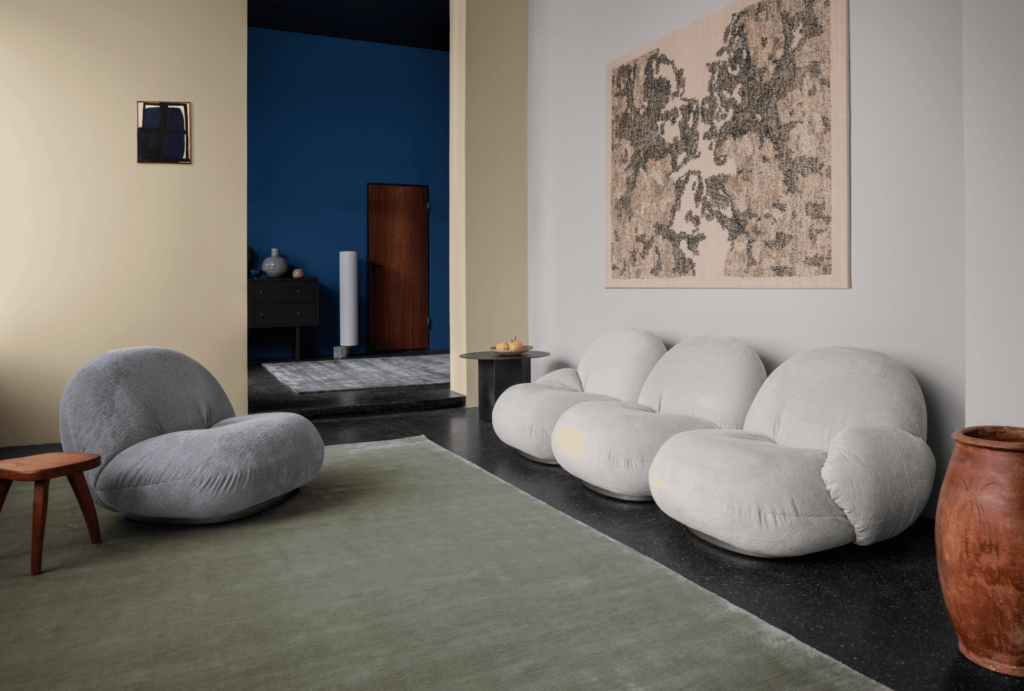
The structure is divided into three elements: the recessed base, the seat and the backrest, since in the first version the Pacha has no armrests. The whole is essential, decorated only by the two seams in the center of the cushions that give rhythm and refinement. The feet are completely absent and it is like an invitation to sit on a very sophisticated cushion resting on the floor.
Over the years, the Pacha has evolved in different directions, with the version equipped with armrests and recently the outdoor version, revolutionary in the outdoor furniture sector. It is like a cloud and the visual impact is strong, but the Pacha, in addition to being a soft sculpture, is still an armchair in all respects.
This means that the refined design is accompanied by the functionality of a seat designed with honesty and intelligence as well as with Paulin’s innate aesthetic sense.
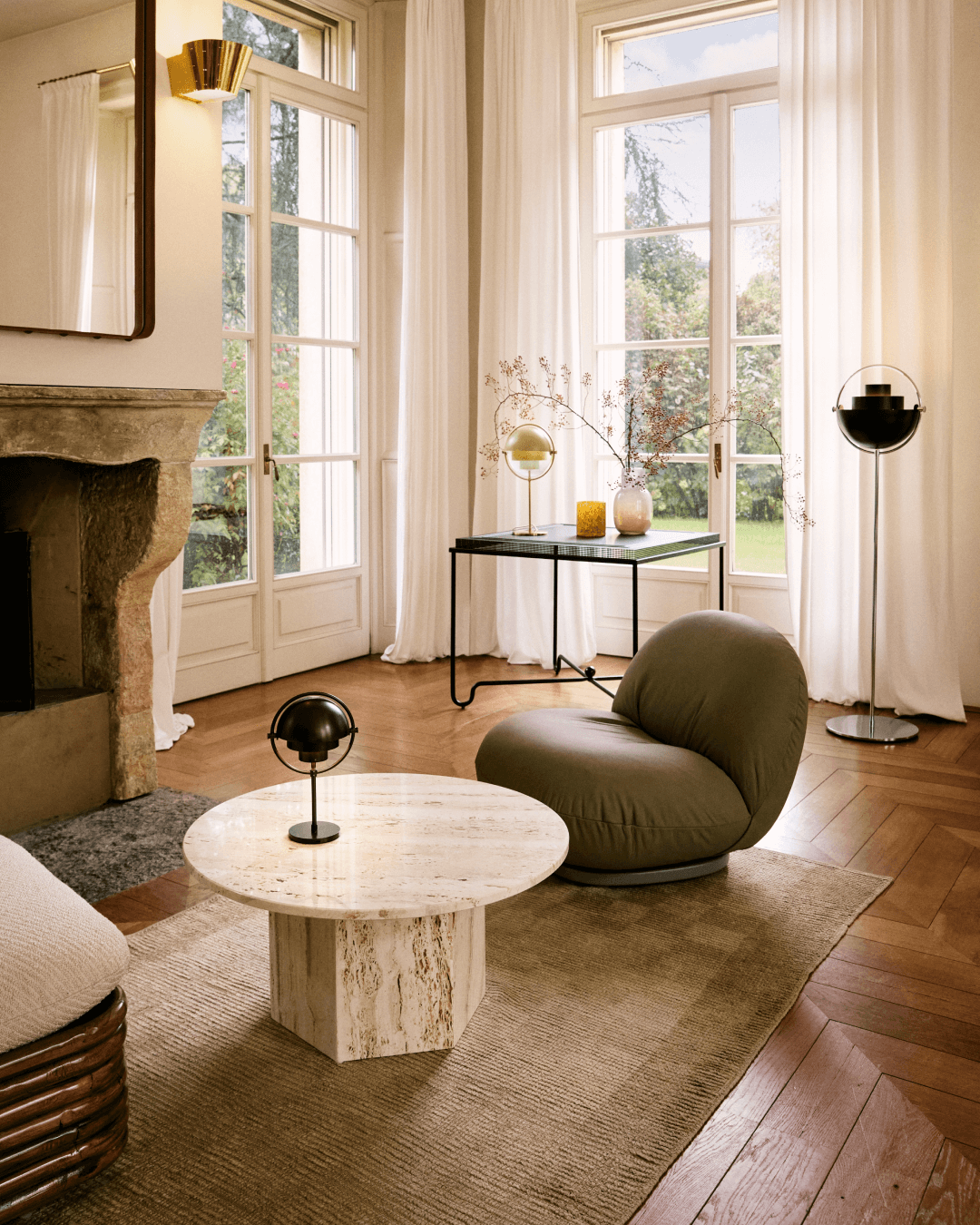
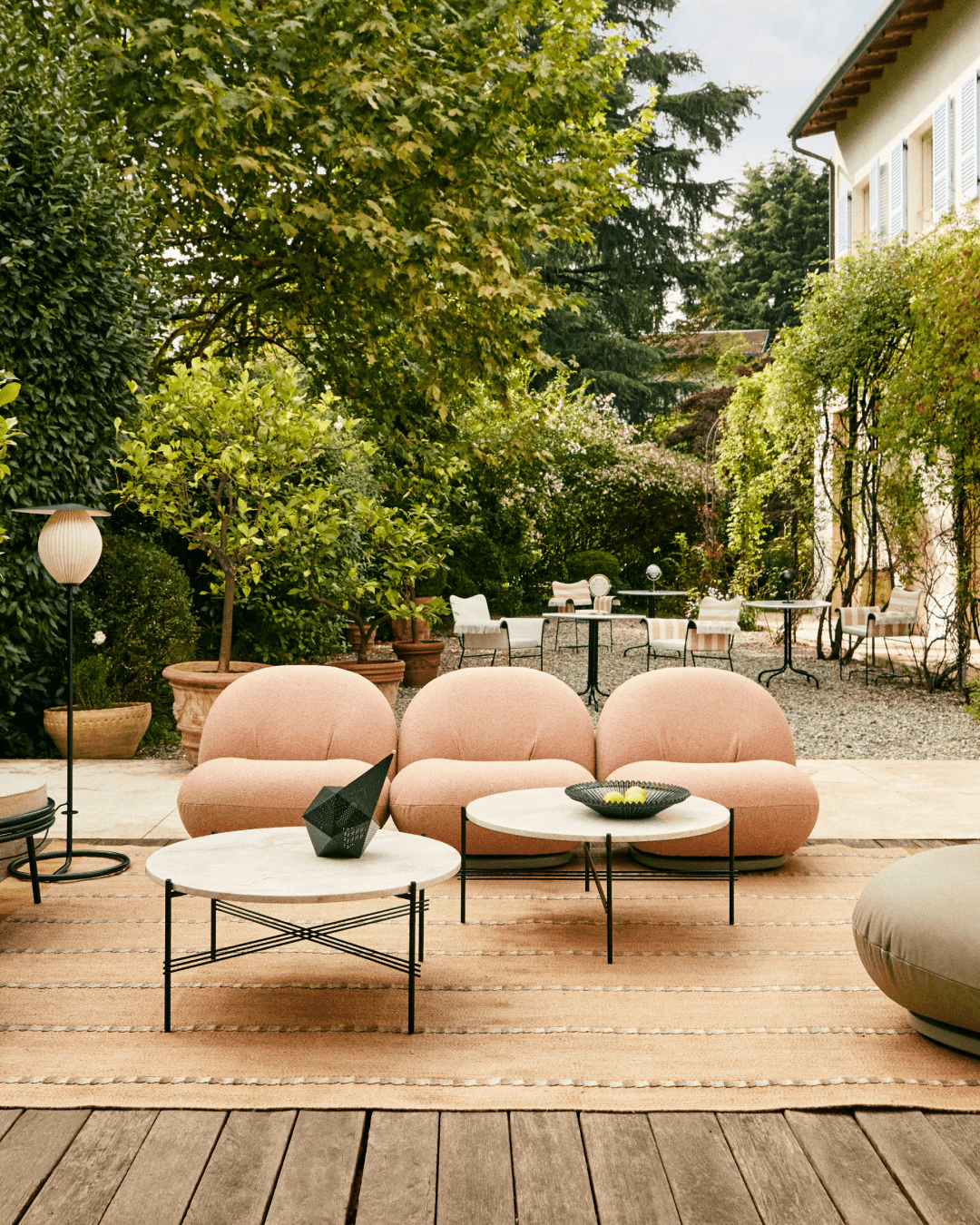
An aesthetic sense that Gubi has further enhanced by dressing the Pacha in refined and timeless fabrics. And it is precisely in this direction that goes the choice to make this armchair even more interesting with the new Karakorum Stripe upholstery.
By Dedar, in wool, viscose and bouclé cotton, this fabric has a very intense tactile and visual texture as well as being durable. The name of this line is a tribute to the capital of Mongolia, once a fundamental hub of the historic Silk Road. The black and white striped motif accentuates the sinuous shapes of the Pacha, underlining its sculptural profile and personality.
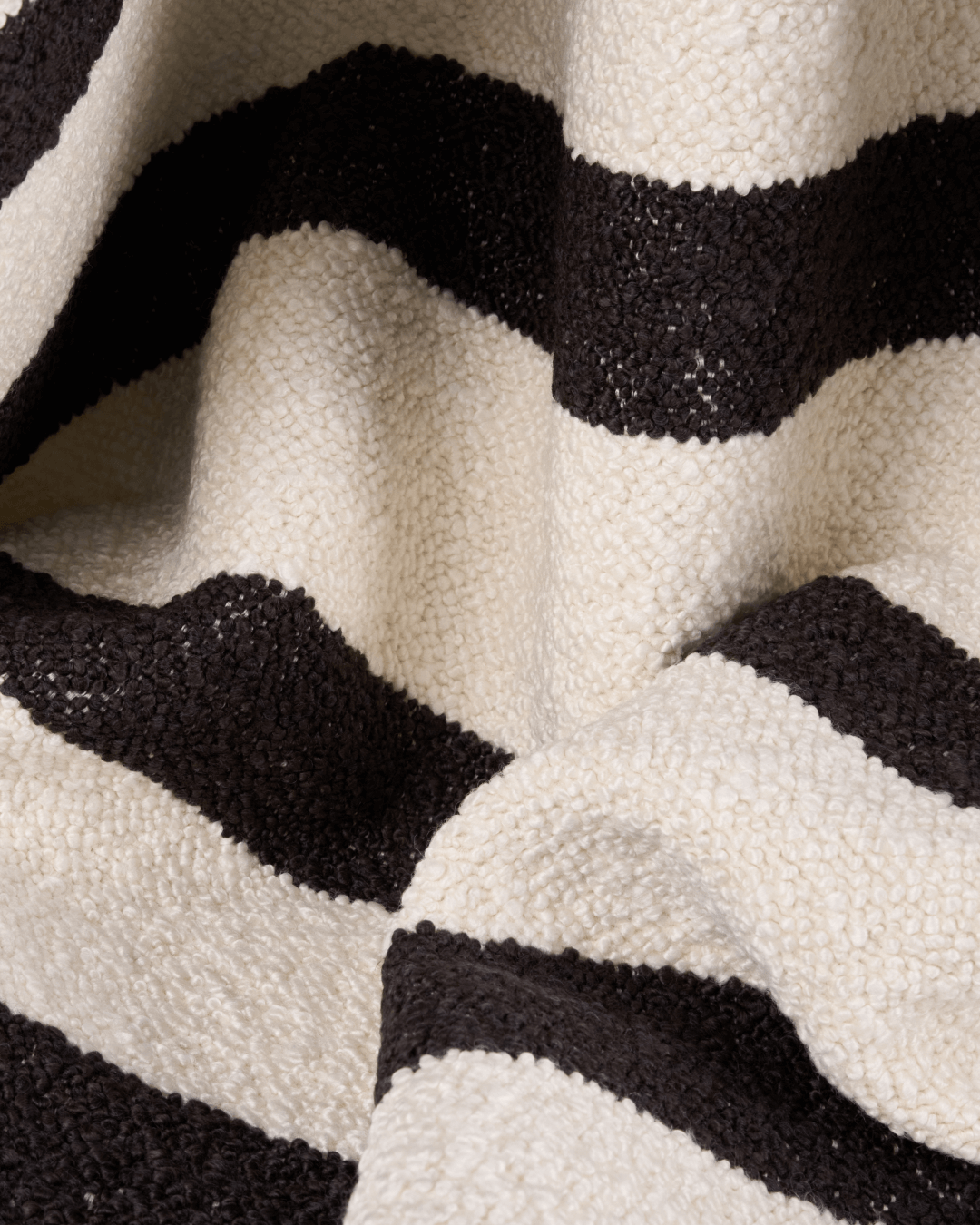
A novelty for spring 2025 perfectly consistent with today’s trend to reconcile elegance and irony, sophisticated and informal atmosphere, just like in the years when the Pacha was first imagined.